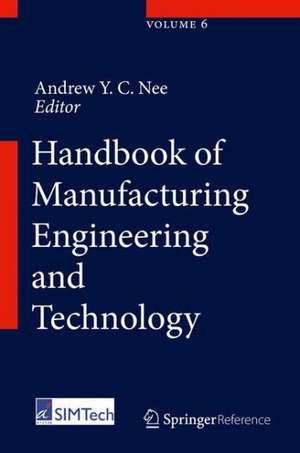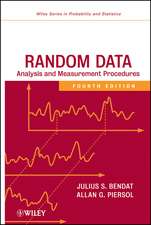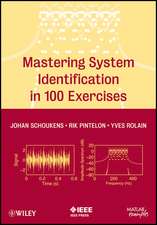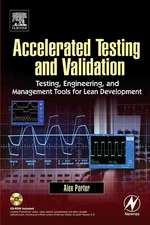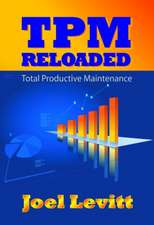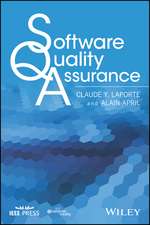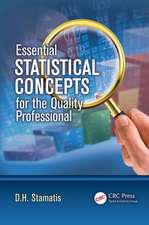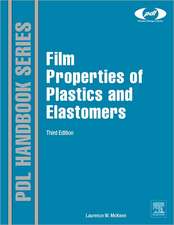Handbook of Manufacturing Engineering and Technology
Editat de Andrew Y. C. Neeen Limba Engleză Hardback – 30 oct 2014
Preț: 2875.49 lei
Preț vechi: 3783.54 lei
-24% Nou
Puncte Express: 4313
Preț estimativ în valută:
550.40€ • 598.06$ • 462.63£
550.40€ • 598.06$ • 462.63£
Carte tipărită la comandă
Livrare economică 16-22 aprilie
Preluare comenzi: 021 569.72.76
Specificații
ISBN-13: 9781447146698
ISBN-10: 1447146697
Pagini: 3780
Ilustrații: XLV, 3500 p. 2162 illus., 1260 illus. in color. In 6 volumes, not available separately.
Dimensiuni: 155 x 235 x 204 mm
Greutate: 5.97 kg
Ediția:2015
Editura: SPRINGER LONDON
Colecția Springer
Locul publicării:London, United Kingdom
ISBN-10: 1447146697
Pagini: 3780
Ilustrații: XLV, 3500 p. 2162 illus., 1260 illus. in color. In 6 volumes, not available separately.
Dimensiuni: 155 x 235 x 204 mm
Greutate: 5.97 kg
Ediția:2015
Editura: SPRINGER LONDON
Colecția Springer
Locul publicării:London, United Kingdom
Public țintă
ResearchCuprins
Volume 1: Forming and Joining.- Section 1: Forming of Polymer and Composite Materials.- Fundamentals of polymers and polymercomposite.- Properties and Applications of Polymer Nanocomposites.- Polymer Surface Treatment and Coating Technologies.- Polymer Foam Technology .- Section 2: Metal forming.- Bulk Metal Forming Processes in Manufacturing.- Materials in Metal Forming.- Roll Forming.- Metal Casting.- Incremental Metal Forming processes in manufacturing.- Combined Sheet and bulk forming of high value added components in manufacturing.- Powder processing of bulk components in manufacturing.- Section 3: Materials Joining.- Solid state welding processes in manufacturing.- Manufacturing process: Arc welding.- High energy beam welding processes in manufacturing.- Solid state microjoining processes in manufacturing.- Process of Nanojoining.- Solder Joint Technology.- Adhesive bonding technology.- Volume 2: Machining and Tolerancing Systems.- Section 4: Machining.- Science of Machining.- Machine tools for machining.- Machining Dynamics in Manufacturing.- Machinability of Engineering Materials.- Machining process monitoring.- Coolant and lubrication in machining.- Fixed Abrasive Machining.- Loose abrasive machining.- Mechanical Micro-machining.- Hybrid Machining Process.- Environmentally friendly machining.- Simulation and modeling in machining.- Virtual machining.- Section 5: Tolerancing system.- Computer aided angular tolerance charting system: Implementation.- Volume 3: Nanomanufacturing and Non-Traditional Machining.- Section 6: Nanomanufacturing using ion beam technology.- Introduction to Nanomanufacturing Using Ion Beam Technology.- State-of-the-Art for Nanomanufacturing using Ion Beam Technology.- Ion Beam Instruments Used for Nanomanufacturing.- Ion Beam Figuring Technology.- Focused Ion Beam Nanofabrication Technology.- Nanometric Cutting of Crystal Surfaces Modified by Ion Implantation.- Micro Tools Fabrication by Focused Ion Beam technology.- Nano-gap Electrodes Developed using Focused Ion Beam Technology.- Plasma-based Nanomanufacturing Under Atmospheric Pressure.- Section 7: Non-traditional machining processes.- Electrical Discharge Machining processes.- Chemical Mechanical Machining process.- Process of Laser Machining.- Process of Ultrasonic Machining.- WaterJet Machining process.- Process of Biological Machining.- Volume 4: Robotics and Automation.- Section 8: Robotics and Automation.- Rigid-body Motions.- Manipulator Kinematics.- Manipulator Velocities and Static Forces.- Manipulator Dynamics.- Trajectory Planning.- Motion Control.- Force Control.- Actuation.- Robot Work Cell Calibration and Error Compensation.- Grippers and End-effectors.- Simulation and Offline Programming.- Parallel Robots.- Modular Robots.- Cable-Driven Robots.- Complaint Manipulators.- Autonomous In-door Vehicles.- Robotic Assembly.- Robotic Welding.- Robotic Finishing.- Volume 5: Additive Manufacturing and Surface Technology.- Section 9: Additive manufacturing.- Rapid Manufacturing.- Reverse Engineering for Additive Manufacturing.- Rapid Prototyping in Manufacturing.- Rapid Tooling in Manufacturing.- Micro Prototyping and Fabrication in Manufacturing.- Micro- And Bio- Rapid Prototyping Using Drop-On-Demand 3D Printing.- Section 10: Surface technology.- Foresight of the Surface Technology in Manufacturing.- Laser Surface Engineering.- Laser Surface Treatment in Manufacturing.- Physical Vapor Deposition in Manufacturing.- Chemical Vapor Deposition in Manufacturing.- Thermal and Cold Spraying Technology in Manufacturing.- Electrochemical Processes in Manufacturing.- Electrochemical Deposition and Characteristics of the Deposits.- Magnetron sputtering technique.- ALD: atomic layer deposition – precise and conformal coating for better performance.- Surface Modification of Semiconductor via Simultaneous Thermal Oxidation and Nitridation Technique.- Surface Treatments for Magnesium Alloys.- Thermal Stress Analysis and Characterization of Themo-Mechanical Properties of thin films on an elastic substrate.- Volume 6: Product Life Cycle and Manufacturing Simulation.- Section 11: Product life cycle and green manufacturing.- Remanufacturing and Remaining Useful Life Assessment.- Product Design for Remanufacturing.- Product service supply-chain design.- Product Characteristic Based Method for End-of-Life Product Recovery.- Use of Embedded Smart Sensors in Products to Facilitate Remanufacturing.- Pricing Strategies of Remanufacturing Business with Replacement Purchase.- Diesel engine block remanufacturing: Life cycle assessment.- Sustainable Value Creation in Manufacturing at Product and Process Levels: Metrics-based Evaluation.- Data Driven Modeling for Decision Making in Remanufacturing.- Life Cycle Management of LCD TV – A case study.- Section 12: Manufacturing simulation and optimization.- Resource scalability in networked manufacturing system: Social network analysis based approach.- Improved Intelligent Water Drops Optimization Algorithm for Achieving Single and Multiple Objective Job Shop Scheduling Solutions.- Process plan and scheduling integration for networked manufacturing using mobile-agent based approach.
Notă biografică
Andrew Y.C. Nee is a Professor in the Department of Engineering at the National University of Singapore.
Caracteristici
Provides overviews and in-depth and authoritative analysis on the basic as well as cutting-edge manufacturing technologies and sciences across a broad spectrum of areas
Includes established and emerging topics critical to the understanding of fundamental concepts, processes, practices and technologies
Covers a variety of departments such as Mechanical Engineering, Production Engineering, Industrial Engineering, Electrical Engineering, and Robotics
Includes supplementary material: sn.pub/extras
Includes established and emerging topics critical to the understanding of fundamental concepts, processes, practices and technologies
Covers a variety of departments such as Mechanical Engineering, Production Engineering, Industrial Engineering, Electrical Engineering, and Robotics
Includes supplementary material: sn.pub/extras
